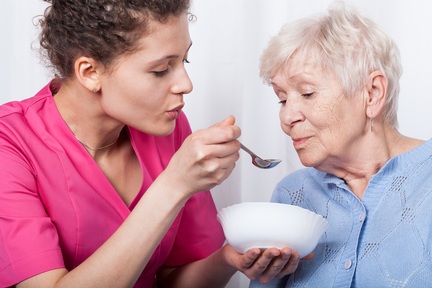Care workers get WHO tips to limit mental health impact of coronavirus
With the coronavirus raising the global population's stress levels, the World Health Organisation (WHO) has published advice on how care workers can look after the mental health of those they care for as well as themselves.

The WHO's guidance on COVID-19 includes specific advice for care workers of older adults, those with complex health conditions and people in isolation.
The organisation warns care workers ‘managing your stress and psychosocial wellbeing during this time is as important as managing your physical health’.
The guidance advises that ‘older adults, especially in isolation and those with cognitive decline/dementia, may become more anxious, angry, stressed, agitated, and withdrawn during the outbreak/while in quarantine’.
It advises care workers to ‘share simple facts about what is going on and give clear information about how to reduce risk of infection in words older people with/without cognitive impairment can understand'.
‘It may also be helpful for information to be displayed in writing or pictures’ ,the WHO says.
'Stay connected'
For care workers in isolation, the WHO advises them to stay connected and maintain their social networks and try to maintain their personal daily routines.
‘Some workers may unfortunately experience avoidance by their family or community due to stigma or fear. This can make an already challenging situation far more difficult. If possible, staying connected with your loved ones including through digital methods is one way to maintain contact.
‘If health authorities have recommended limiting your physical social contact to contain the outbreak, you can stay connected via e-mail, social media, video conference and telephone.
'Turn to your colleagues, your manager or other trusted persons for social support - your colleagues may be having similar experiences to you. This is a unique and unprecedent scenario for many workers, particularly if they have not been involved in similar responses.'
Take rest, respite, eat well, exercise and stay connected'
The WHO advises 'the strategies to benefit feelings of stress are the same, even if the scenario is different.’
For instance, the advice highlighted the need for care staff to take rest and respite during work or between shifts, eat enough healthy food, engage in physical activity, and stay in contact with family and friends.
'Near-constant stream of news' causes worry
The WHO has said: 'The sudden and near-constant stream of news reports about an outbreak can cause anyone to feel worried'.
The WHO advises people to:
- Avoid watching, reading or listening to news that cause you to feel anxious or distressed;
- Seek information mainly to take practical steps to prepare your plans and protect yourself and loved ones. Seek information updates at specific times during the day once or twice.
- Get the facts. Gather information at regular intervals, from WHO website and local health authorities.
- Protect yourself and be supportive to others. Assisting others in their time of need can benefit the person receiving support as well as the helper.
Charity OCD Actions says encouraging people who have OCD (Obsessive Compulsive Disorder) and already wash their hands a lot can make their condition worse. Self isolation can lead to boredom which also makes OCD worse.
Like what you read? For more news click here and you can listen to our latest podcast ‘Let’s Talk About Care’ by clicking here
Latest News
 29-Jul-24
Dementia Bus gives carehome.co.uk staff insight into life with dementia
29-Jul-24
Dementia Bus gives carehome.co.uk staff insight into life with dementia
 01-Mar-24
Find out the top care homes in 2024
01-Mar-24
Find out the top care homes in 2024
 21-Mar-23
UK's top care homes in 2023 revealed
21-Mar-23
UK's top care homes in 2023 revealed
 03-Jan-23
carehome.co.uk launches free care helpline
03-Jan-23
carehome.co.uk launches free care helpline
 13-Dec-22
5 mins with Emily Whitehurst, chief operating officer for Constantia Healthcare
13-Dec-22
5 mins with Emily Whitehurst, chief operating officer for Constantia Healthcare